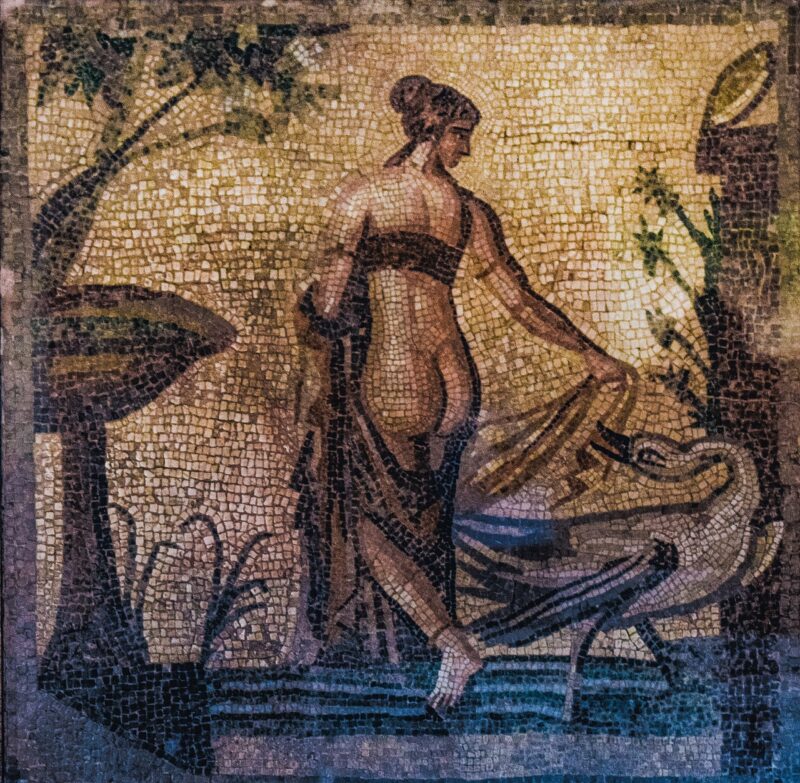The Influence of Ancient Civilizations on Modern Political Institutions
November 16, 2024

Politics is an ever-evolving landscape influenced by numerous factors, including culture, history, and social structures. One cannot overlook the profound impact that ancient civilizations have had on the establishment and development of modern political institutions. By examining the political frameworks of ancient Greece, Rome, and Egypt, we can uncover the foundational concepts that continue to resonate in contemporary governance today.
1. The Legacy of Ancient Greece: Foundations of Democracy
Among the ancient civilizations, Greece stands out for its pioneering role in the conception of democracy. The city-state of Athens, from the 5th century BCE, established a political system based on direct participation of its citizens, laying the groundwork for modern democratic principles.
### Citizen Participation
In Athens, citizens (though not women, slaves, or foreigners) could participate in decision-making through assemblies and councils. This engagement fostered a sense of community and accountability, principles that are now integral to democratic systems worldwide. The modern notion of civic responsibility can trace its roots back to these early assemblies where citizens debated and voted on significant issues.
### Political Philosophies
Philosophers like Plato and Aristotle also significantly influenced political thought. Plato, in his works, envisioned ideal states, raising essential questions about justice and governance, while Aristotle’s writings laid down empirical observations about different governmental systems. Concepts such as checks and balances, rule of law, and the importance of informed citizenry derive from these ancient teachings.
### Influence on Modern Democracies
Modern democracies, particularly in the West, have adopted elements such as:
– **Elected Representatives:** Reflecting the Athenian model, where citizens had a voice in governance.
– **Legal Frameworks:** Inspired by Greek laws that sought to establish fairness and justice.
– **Public Discourse:** The importance of debate and discussion in shaping public policy resonates with the forum-like gatherings in ancient Athens.
By understanding these principles, we realize how much modern political institutions continue to reflect the foundational ideas put forth by ancient Greek thinkers.
2. The Roman Republic and the Concept of Citizenship
The Roman Republic, lasting from 509 BCE until 27 BCE, brought about significant advancements in political organization and structure, profoundly influencing later political models.
### Rule of Law and Governance
The Romans pioneered legal systems that involved a complex structure of checks and balances designed to prevent any one branch of government from gaining too much power. Their use of a bicameral legislature—with the Senate and the Assemblies—laid the groundwork for the modern legislative systems used today.
### Codification of Laws
The development of the *Twelve Tables* marked a significant advancement in written law, which has inspired contemporary legal systems. The idea that laws should be publicly displayed and accessible to the citizenry is fundamental to modern legal frameworks.
### Expansion of Citizenship
Rome also expanded the concept of citizenship. Initially limited, it gradually included people from diverse backgrounds, a practice that is mirrored in modern citizenship policies aimed at inclusivity. The modern principles of civil rights, protection under the law, and due process can be traced back to Roman practices and concepts.
### Political Legacy
Today, the legislative bodies of many countries draw from Roman principles, emphasizing the need for a comprehensive legal code that respects and protects all citizens. The influence of Roman governance models highlights the evolution of political institutions through ideas that prioritize collective representation while establishing effective governance structures.
3. Ancient Egypt: The Role of Leadership and Governance
While Greece and Rome provided templates for democracy and republicanism, ancient Egypt contributed diversification in governance and the significance of leadership.
### Divine Kingship and Governance
The Pharaohs were considered divine, ruling with absolute authority. This model emphasizes the importance of leadership in governance, where the leader is both a political and spiritual figure. Although modern democracies do not mirror absolute monarchies, the emphasis on strong leadership qualities remains prevalent in contemporary political frameworks.
### Administrative Structure
Ancient Egypt also introduced a complex bureaucratic system, managing various aspects of society from tax collection to resource management. The organization and efficiency found in Egyptian administration have influenced modern bureaucratic systems employed in government institutions, enhancing their functionality.
### Social Order and Ethics
Ethics and moral governance in ancient Egypt, exemplified by the concept of *ma’at*—representing truth, balance, and justice—have shaped contemporary discussions regarding moral responsibilities of governance.
The emphasis on ethical conduct in leadership is seen in modern political discourses, where accountability and transparency are increasingly demanded.
4. Interconnections and the Modern World
Ancient civilizations didn’t operate in isolation; their influences often intermingled, creating a rich tapestry of governance practices that continue to affect political institutions today.
### Synthesis of Ideas
By synthesizing concepts from Greek democratic ideals, Roman legal frameworks, and Egyptian administrative efficiency, modern political systems exhibit a blend of these age-old practices. This fusion is particularly evident in:
– **Bicameral Legislatures:** Drawing on Roman Senate models.
– **Civic Engagement:** Inspired by Greek democratic practices.
– **Bureaucratic Governance:** Simplified through Egyptian efficiency.
### Global Governance Structures
Furthermore, the rise of global governance organizations today, such as the United Nations, reflects the interconnected influence of these civilizations, which emphasized the need for collaboration and shared governance.
### Conclusion
Understanding the historical underpinnings of modern political institutions allows us to appreciate the evolution of governance practices over centuries. It illuminates how ancient civilizations have profoundly shaped our political landscape, guiding the principles of representation, legality, and ethical governance. The contributions of ancient Greece, Rome, and Egypt serve not only as historical benchmarks but as continuing influences on contemporary political thought, reminding us that the lessons of the past still hold relevance today.
In an age where discussions around governance are more critical than ever, reflecting on these ancient roots can provide insights into how to address modern challenges and develop political systems that serve all citizens effectively.








